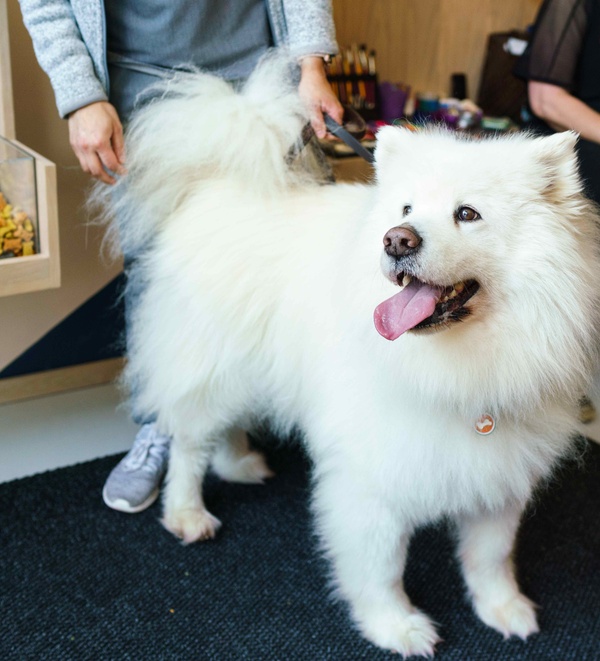
How To Keep Your Dog’s Mouth Healthy
Like humans, dogs need to take care of their oral health. And like humans, they’re not exactly fans of the dentist.
Dogs are inquisitive animals by nature, and a lot of that curiosity ends up in their mouths. All that exploration can lead to an unhealthy buildup of bacteria in their teeth. And it’s not just a harmless case of smelly breath. Without proper care, bacteria in their mouths can enter your dog’s bloodstream and spread to their kidneys, liver, or even heart, with potentially life-threatening consequences.
SEE ALSO: The Guide to NYC Dog Vaccinations
Fortunately, with regular oral care, you can help your pup stay healthy while bonding over a grooming routine. While getting their teeth cleaned may not be your dog’s favorite task, there are many great options to keep their pearly whites clean and their kisses coming.
Plaque attack
Brushing your furry friend's teeth can be tricky, but it’s the gold standard of care. The Veterinary Oral Health Council (VOHC) recommends daily brushing to destroy harmful bacteria in their mouths and prevent buildup from returning. Be sure to use products specifically intended for your pup since human toothpaste can be toxic for them — the VOHC has a handy list of recommendations.
The main deterrent against brushing their teeth may actually be your dog. Ease them in by introducing the practice slowly and administering lots of praise. Allow them to explore the products — you can start by letting them taste their toothpaste. From there, use your finger to gently massage it into their teeth before eventually switching to a soft toothbrush or one designed to fit your finger.
It’s best to start them young, but even if you’ve never brushed their teeth before, it’s not too late to begin.
Spray it
If your dog absolutely hates toothbrushing, there are other options to carry them between cleanings. Dental sprays specifically designed for dogs can freshen breath and deliver enzymes that help break down plaque. You can also add bacteria-fighting rinses to their drinking water or apply leave-on gels that don’t require additional scrubbing. Most pet stores carry these options in a variety of dog-approved flavors.
Boning Up
While toothbrushing may not come naturally for your pup, chewing should be second nature. Feed that instinct by giving your dog raw, meaty bones to gnaw. Chewing raw bones can be a welcome way to clear off tartar. Choose something proportionate to their size and always supervise their activity — smaller, chewed-down pieces can be a choking hazard.
Oral Fixation
Like raw bones, tendons and bully sticks are alternatives that help keep dogs’ mouths clean and healthy. These high-protein options can chip off hard tartar while satisfying your pup’s natural instinct to chew. They’re also a great choice for puppies, those with sensitive mouths and gums, and older dogs since they get softer when wet, unlike bones.
Treat Me
Doggy dental treats are another positive way to reinforce oral hygiene. These treats are often created with breath-freshening ingredients and turn a chore into a reward by helping remove plaque. They’re available in a variety of flavors and sizes; we recommend finding something with a little give to reduce the risk of chipping or breaking teeth.
Playtime
If you’re looking for a zero-calorie option, chew toys combine play and protection into a fun cleaning alternative. Your dog’s gnawing action helps chip off persistent plaque, and rubber or nylon chew toys can do the same job as their edible counterparts, without disrupting their diet.
Easy does it
Brushing teeth can be tricky. Some dogs have sensitivities and can’t tolerate even a gentle dental routine. Luckily for them (and us), with routine maintenance between teeth cleanings and plenty of positive reinforcement, you can get, and keep, them healthy.
Sources: